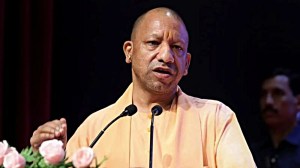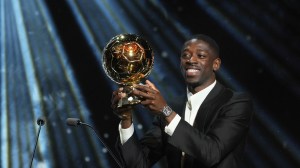Goldilocks and the three bears
Strange that the first formal day of the World Economic Forum Annual Meeting should begin with a summary of the Goldilocks economy that the world will continue to witness in 2007.

Strange that the first formal day of the World Economic Forum Annual Meeting should begin with a summary of the Goldilocks economy that the world will continue to witness in 2007. Because that is how the key speakers at this session began. It was delightful to hear the China perspective, where they’re talking about 10.3 per cent GDP growth with absolutely no hiccups on the radar whatsoever: must sound like music to the communists we have back home.
But then the stellar panel that sat down to deliberate included our very own Montek Singh Ahluwalia. The more I listen to Montek, the more I believe he has his heart in the right place. The Planning Commission notwithstanding, Montek made a succinct point that while India was looking at closing March 31 at a GDP growth figure of about 8.3 per cent, he reckoned it would take us ten years to hit the 10 per cent figure. But the critical point he also made was that it was essential for India to examine the investments being ploughed into agriculture as that was an area under neglect and deserved more attention.
Laura Tyson, the former dean of the London Business School, made a passionate defence of America’s growth — or lack of it — but it was quite clearly an India-China story all the way again, a theme that is becoming a trifle repetitive. My morning was spent with Sunil Mittal. We both drove up to the Congress Centre and what is heartening is to see Sunil lose none of his humility even though was quite clearly elated at Bharti now becoming India’s second most valuable company by market cap. Something that Rahul Bajaj did not stop reminding him about. But then, as I have said before, Rahul Bajaj could easily swap places with Klaus Schwab, so aligned is he with the Forum that it seems very unlikely that Davos could ever happen without him.
As I said in my last column, the Forum is quite clearly seized with the whole issue of climate change, which is why the session ‘Make Green Pay’ was not just excellent in terms of content but was quite an eye-opener. Among the star speakers were Vinod Khosla and Sir Nicholas Stern. This was a CNBC International Debate, which will be telecast all over the world. If you can catch it either on your television or on the web, you must. A reality check like never before and succinct to the core.
The moot point was that nuclear energy and coal were going to be power sources that would be either very expensive or long-term, whereas the world is clearly running out of time. There was, thus, a need to focus on innovation in energy and create awareness across the world, both in developed and developing markets, as to the usefulness of such a step. Nicholas Stern, who published the famous Stern Review on Climate Change last October, remarkably accentuated the fact that the world today is precariously poised. The fact that even George Bush has woken up to this must suggest something alarming is going on in this domain.
The atmosphere at Davos remains exciting. It has finally snowed like mad and the buzz is beginning to build up. There are some amazing sessions in the offing on topics ranging from depression to why brains need sleep.
The writer is managing partner, Counselage India
Photos


- 01
- 02
- 03
- 04
- 05





























